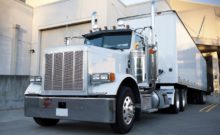In September, the US House voted unanimously to pass a bill which would allow automated vehicles on the road. The bill itself caused a stir, because it would have allowed self-driving commercial vehicles to join the ranks of other automated personal cars being allowed on the road. The Teamsters, however, lobbied strongly to persuade congress to exclude trucks from the bill. This resulted in trucking legislation that kept self-driving commercial vehicles from being released on the roads in the near future. However, automated trucking legislation is now front and center with the United Stages government, with two sides making their cases over the next few months.
Those In Favor Of Automated Trucking Legislation
Proponents of getting automated trucking legislation passed point to a safer future. Automated vehicles greatly reduce accidents caused by human error. With safety being the major focus of the freight industry, removing the human factor will increase revenue and reduce insurance costs across the board. Automated trucking legislation would also, if passed, bring the industry into the future. Holding back technological progress will put us behind other countries that are already making allowances for self-driving commercial vehicles. Proponents claim the trucking industry in the United States would ultimately suffer for lack of efficiency and safety, and that plans can be made to successfully handle the people who would transition out of the driver’s seat, though no thorough proposal on that front has been put forward.
Those Against Automated Trucking Legislation
There are two major groups fighting against trucking legislation for automated commercial vehicles. The first group is worried about safety. Removing the human element means no one is in charge if and when automated trucks malfunction. How will insurance be handled? Who is liable? The trucking fleet or the manufacturer? Again, these questions have yet to be answered. The second group is worried that automated trucking legislation will cause massive unemployment throughout the country. Truck drivers have made careers out of hauling, and have families who depend on that income. Forcing people out of their careers means the unemployment rate in the US would skyrocket, with no security set up for the transition. They point to the large cost of truckers investing in ELDs to meet mandatory trucking legislation, saying that automated trucks would render that a wasted expense, with the added cost of purchasing new technology while laying off drivers.
The discussion before Congress will continue in October, and we will report on any resolutions.






